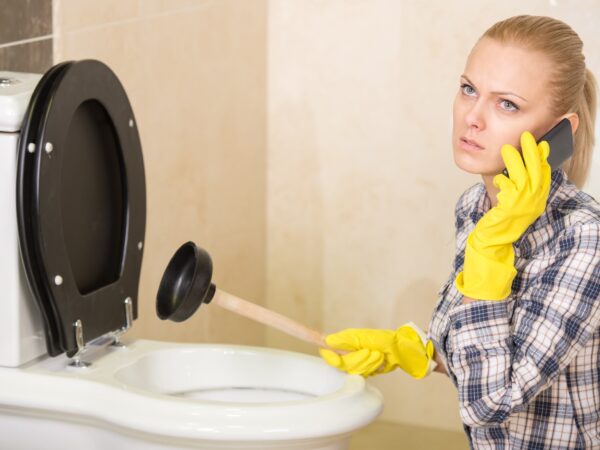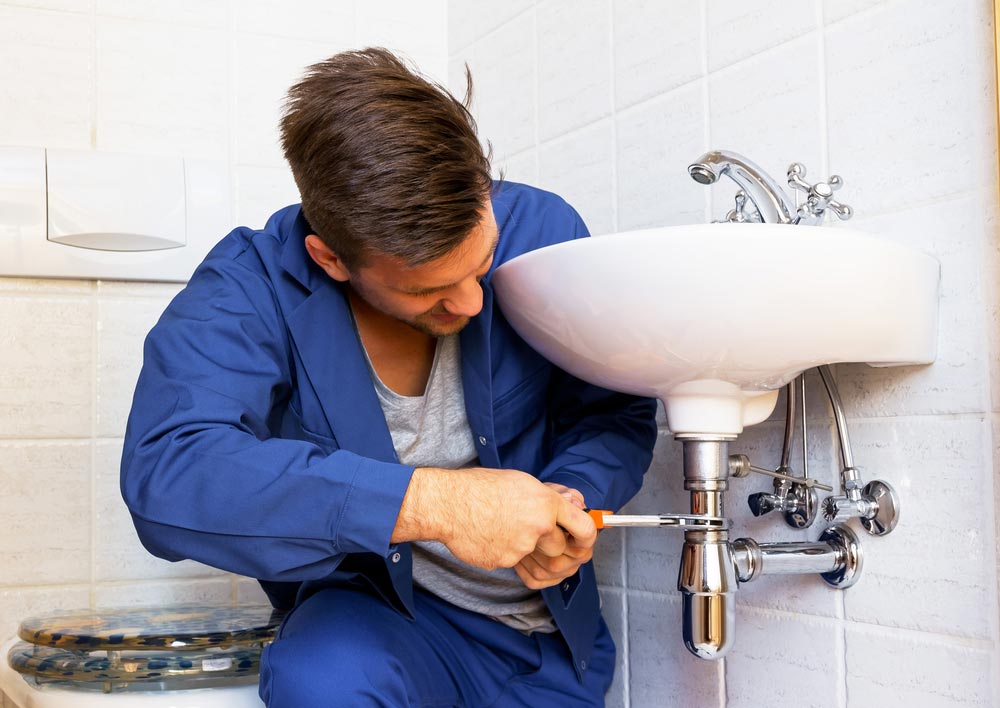How to Manage Urgent Pipe Problems with Temporary Solutions Until Help Arrives
How to Manage Urgent Pipe Problems with Temporary Solutions Until Help Arrives
Blog Article
Are you currently searching for facts involving Expert Tips for Emergency Plumbing Repairs?

Plumbing emergencies can strike at any moment, creating stress and anxiety and possible damages to your home. Whether it's a burst pipe, a clogged drain, or a leaking faucet, knowing exactly how to handle the circumstance up until an expert plumbing technician gets here can conserve you from additional problems. This short article offers important emergency pipes pointers to assist you alleviate damage and regain control during a pipes situation.
Shut off the Supply Of Water
The initial step in any pipes emergency situation is to turn off the supply of water. For localized concerns, such as a dripping faucet or toilet, switch off the shutoff near the fixture. In the case of a significant leakage or burst pipe, situate your home's primary water shut-off valve and turn it off promptly. Knowing the location of these shutoffs in advance can save valuable time during an emergency.
Turn off Your Hot Water Heater
In certain emergency situations, such as a burst pipeline, it's important to shut down your water heater. This protects against overheating or damage to the device when water quits moving. Shut off the power supply to the water heater (electric or gas) and allow it cool to stay clear of potential threats.
Briefly Quit a Ruptured Pipeline
A burst pipeline can result in significant water damage in mins. To reduce the problem:
Call an expert plumbing professional instantly to address the trouble completely.
Have an Emergency Situation Pipes Package
Prepare a fundamental plumbing emergency situation kit to manage small concerns properly. Your set must include:
Having these tools available can make a substantial difference in your capacity to take care of emergencies.
Unclog Drains Pipes Safely.
A clogged up drainpipe can be an aggravating and unpleasant issue. Below's how to tackle it:.
If these methods don't work, avoid using excessive force, as it may get worse the clog.
Take Care Of Overflowing Toilets.
An overflowing toilet can cause instant mayhem. Right here's what you must do:.
Address Little Leakages with Short-lived Fixes.
Tiny leakages can rapidly end up being considerable issues if left unattended. Use these temporary solutions till expert help gets here:.
While these fixes aren't irreversible, they can aid lessen water loss and damage.
Take Care Of Frozen Water Lines Very Carefully.
In colder environments, icy pipes are a common emergency situation. If you think an icy pipeline:.
Know When to Call a Specialist.
While quick fixes can assist temporarily, particular plumbing concerns require prompt professional focus. Call a plumbing technician if:.
Promptly speaking to a professional makes sure the concern is fixed appropriately and prevents additional difficulties.
Prevent Additional Damages.
Taking quick activity to decrease damage can save you money and time in the future. Here's exactly how:.
Conclusion.
Plumbing emergency situations can be frustrating, but with the right understanding and devices, you can take care of the situation efficiently until assistance shows up. By switching off the water system, resolving small leaks, and using temporary fixes, you can reduce damage and keep your home safe. Keep in mind, these suggestions are short-term solutions; always consult a licensed plumbing to handle the root cause of the trouble. Prep work and fast reasoning are your finest allies in any plumbing emergency situation.
Expert Tips for Emergency Plumbing Repairs
Plumbing emergencies can be incredibly stressful and inconvenient. Whether it’s a burst pipe, a clogged drain, or a leaky faucet, these common plumbing emergencies need immediate attention to prevent further damage to your home. But before you panic, it’s important to understand the basics of plumbing repairs and the steps you can take to address these emergencies. In this article, we will share some expert tips to help you navigate through these situations and minimize potential water damage.
Identifying Common Plumbing Emergencies
Leaky pipes and faucets Clogged drains and toilets Burst pipes Low water pressure Water heater problems Essential Tools for Plumbing Repairs
Plunger: Useful for unclogging toilets and drains Adjustable wrench: Needed for tightening or loosening nuts and bolts Pipe wrench: Ideal for gripping and turning pipes Tape measure: Necessary for accurate pipe measurements Plumber’s tape: Helps create watertight seals Understanding Emergency Plumbing Services
Emergency plumbing services are designed to provide immediate assistance for unexpected plumbing issues that can cause significant damage to your home, business, or health. These services are typically available 24/7 and are staffed by experienced plumbers who can quickly diagnose and repair a wide range of plumbing problems.
When a plumbing emergency strikes, time is of the essence. Whether it’s a burst pipe flooding your basement or a gas leak posing a serious risk, emergency plumbing services ensure that help is just a phone call away. These professionals are equipped with the tools and expertise to handle any situation, minimizing damage and restoring your plumbing system to proper working order.
What Constitutes a Plumbing Emergency?
Burst pipes or water supply lines: These can cause extensive water damage and need immediate repair to prevent flooding. Gas leaks or suspected gas leaks: Gas leaks are extremely dangerous and require prompt attention to avoid potential explosions or health hazards. Sewer backups or overflows: These can lead to unsanitary conditions and significant property damage. Clogged drains or toilets causing water to overflow: Overflowing water can damage floors, walls, and other structures. Leaks or water damage causing structural damage: Persistent leaks can weaken the structural integrity of your home or business. No hot water or heating: A lack of hot water can be more than an inconvenience, especially in colder months. Common Causes of Plumbing Emergencies
Aging or corroded pipes: Over time, pipes can deteriorate, leading to leaks or bursts. Improperly installed or maintained plumbing fixtures: Faulty installations or lack of maintenance can result in unexpected failures. Tree roots or other debris infiltrating your sewer line: Roots can grow into pipes, causing blockages and backups. Frozen pipes or water supply lines: In colder climates, pipes can freeze and burst, leading to significant water damage. High water pressure or sudden changes in water pressure: Excessive pressure can strain pipes and fixtures, causing them to fail. Natural disasters such as floods or earthquakes: These events can disrupt your plumbing system and cause severe damage. Steps to Minimize Water Damage
Locate the water shut-off valve: Knowing where the valve is can help you quickly cut off the water supply to the affected area. Turn off the water heater: If there’s a risk of water coming into contact with the heating element, make sure to turn off the water heater to avoid potential accidents. Open faucets and drain pipes: By opening faucets and drain pipes, you can relieve pressure and empty any standing water. Collect and contain water: Use towels, buckets, or bins to collect water and prevent it from spreading to other areas of your home. https://leecountyplumbingandwellservice.com/expert-tips-for-emergency-plumbing-repairs/

I came across that piece of writing about when doing a lookup on the web. Sharing is nice. Helping people is fun. Thank you for being here. Return soon.
Call Report this page